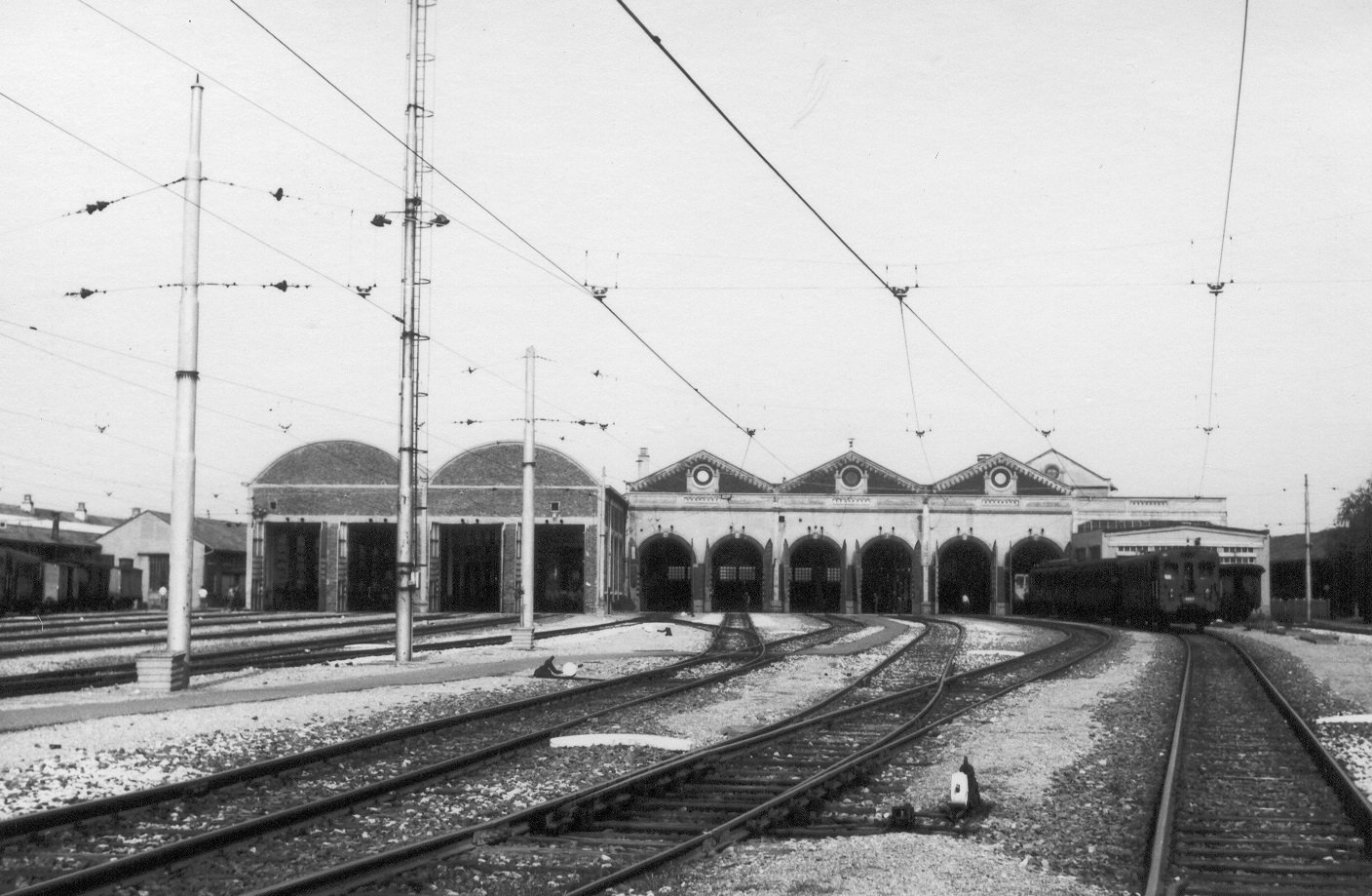
Novate Workshops
Explaining today the change taking place would take time and knowledge. The workshops were and still are, albeit in a more detached way, the true production site of a railway company.
Train maintenance is a virtually unknown topic, but if properly explored, it would merit publications of its own due to its complexity and the strict rules governing it.
The “product” of the workshops is railway efficiency, not a simple route to travel along all its many branches, of which these images offer just a glimpse.
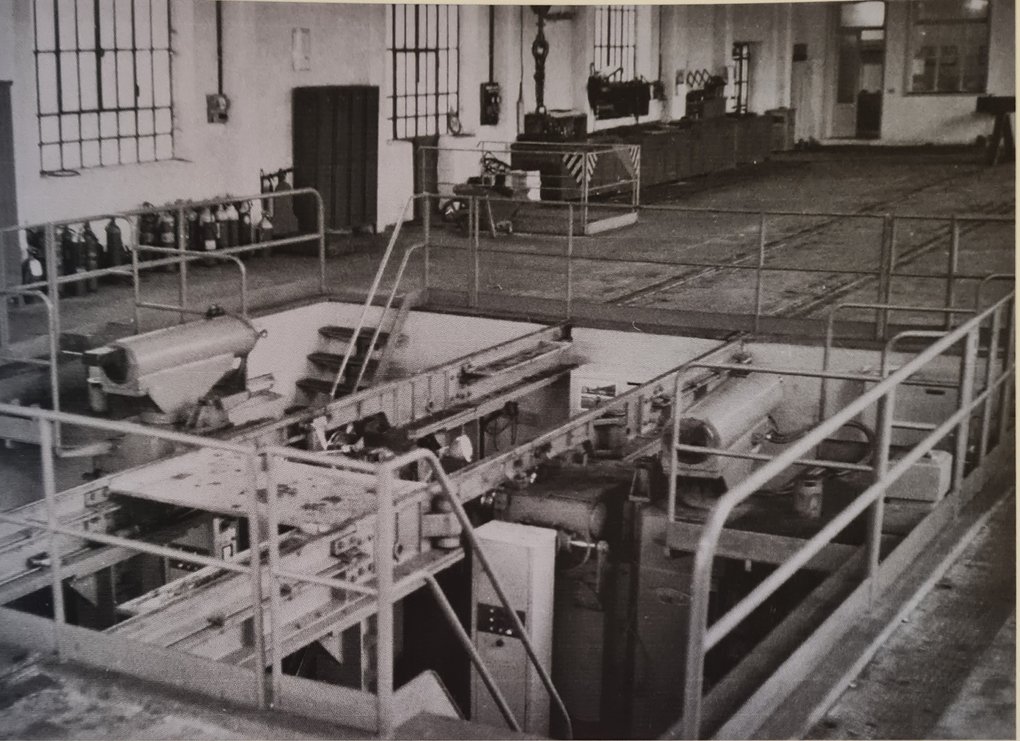
Novate dates back to the late 1920s as a result of electrification of the railway; a place in the country which gradually came to replace Saronno and Milan as the nerve centre of FNM, and which has always represented the real training site and the first step on the career ladder of any true railway engineer.
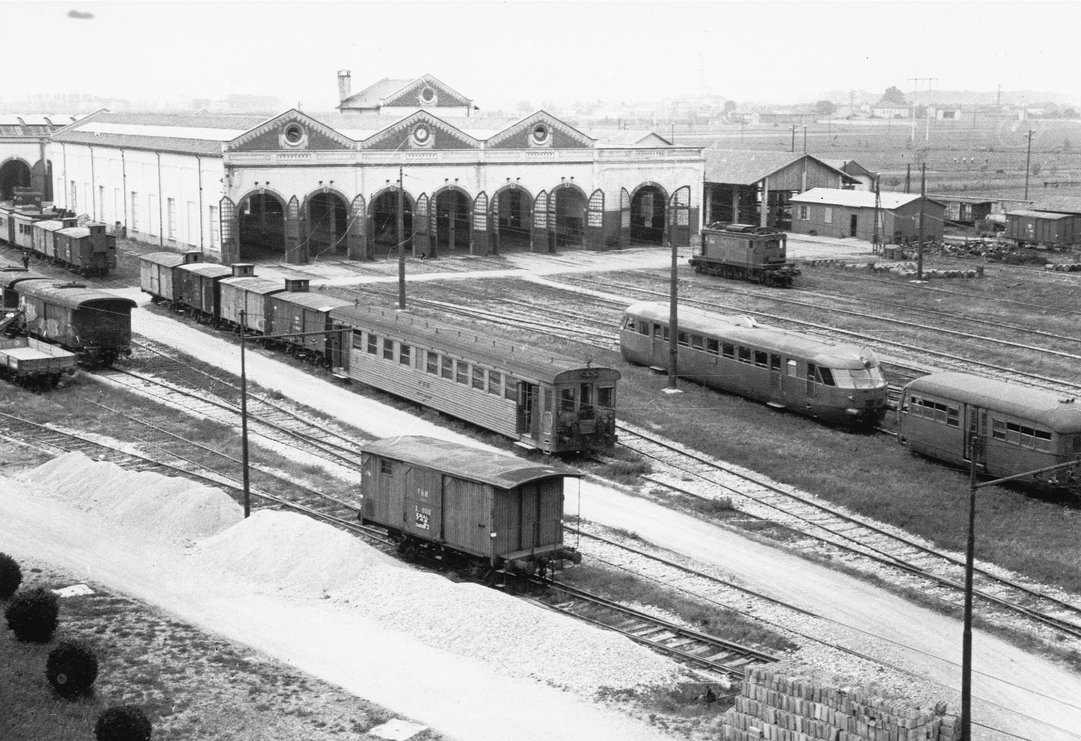
Gallery
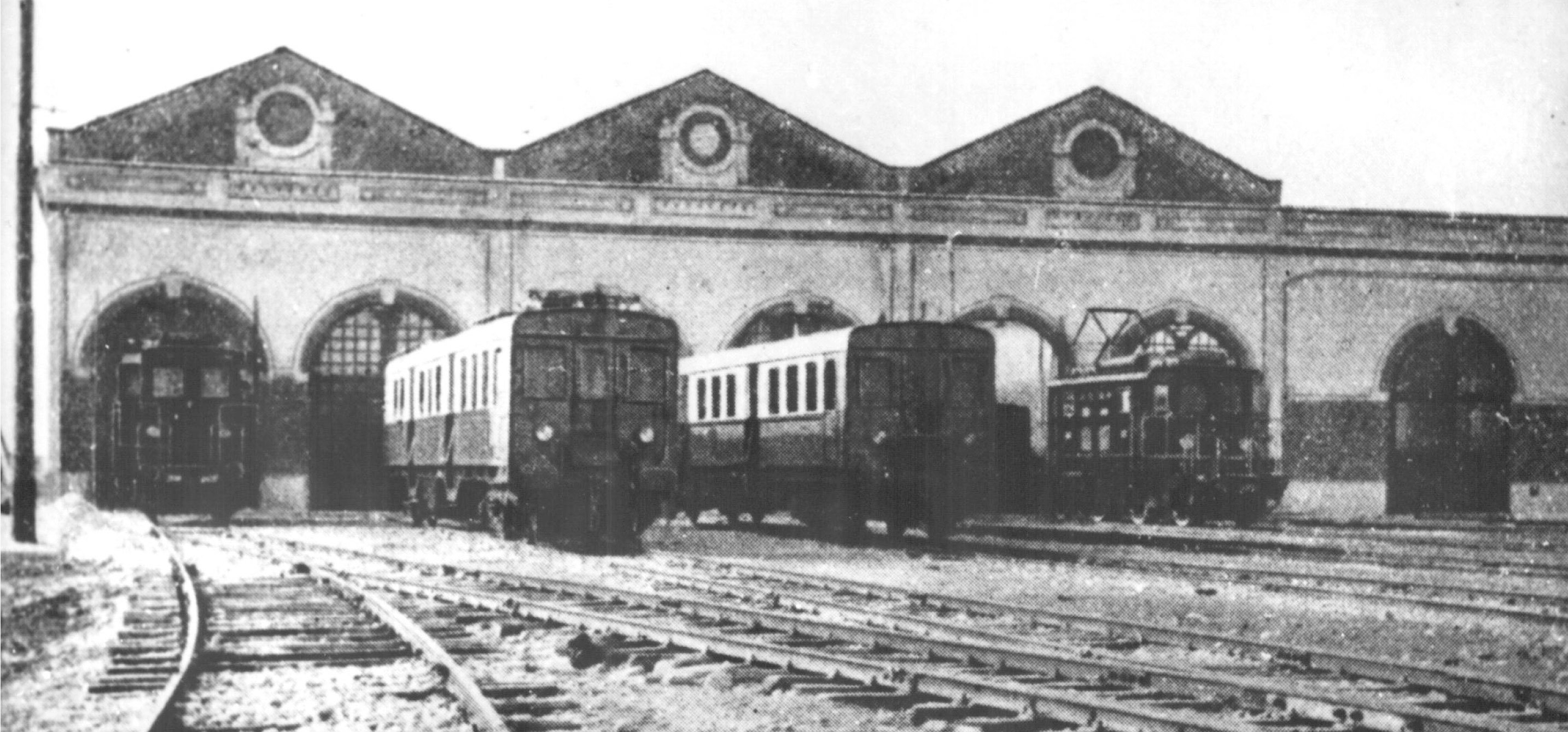
The recently finished locomotive depot for the new electric units, in May 1929 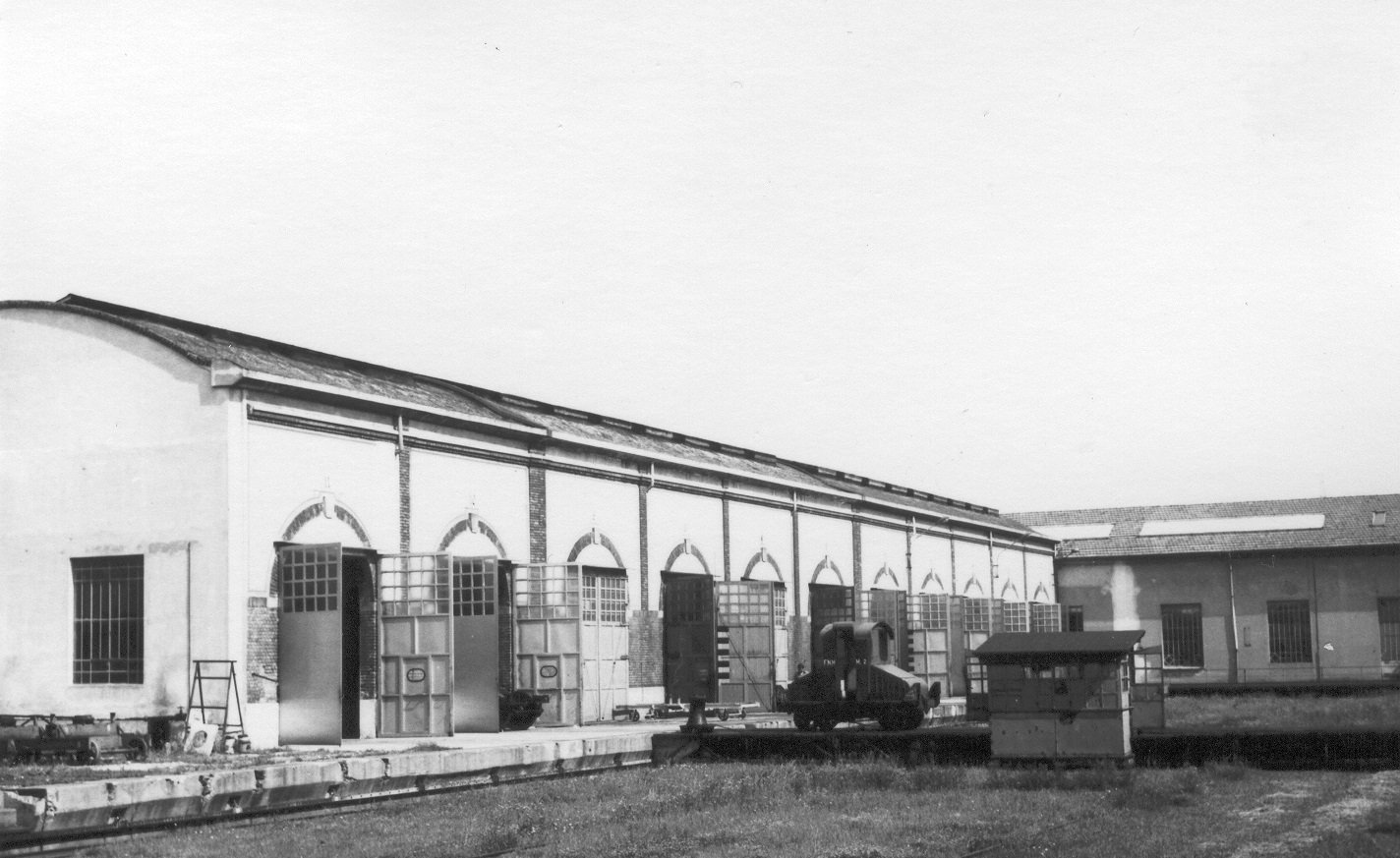
The M3 service unit in the locomotive depot/workshop at Novate in the 1970s. It is currently preserved in the MILS museum in Saronno, with a section dedicated to it. 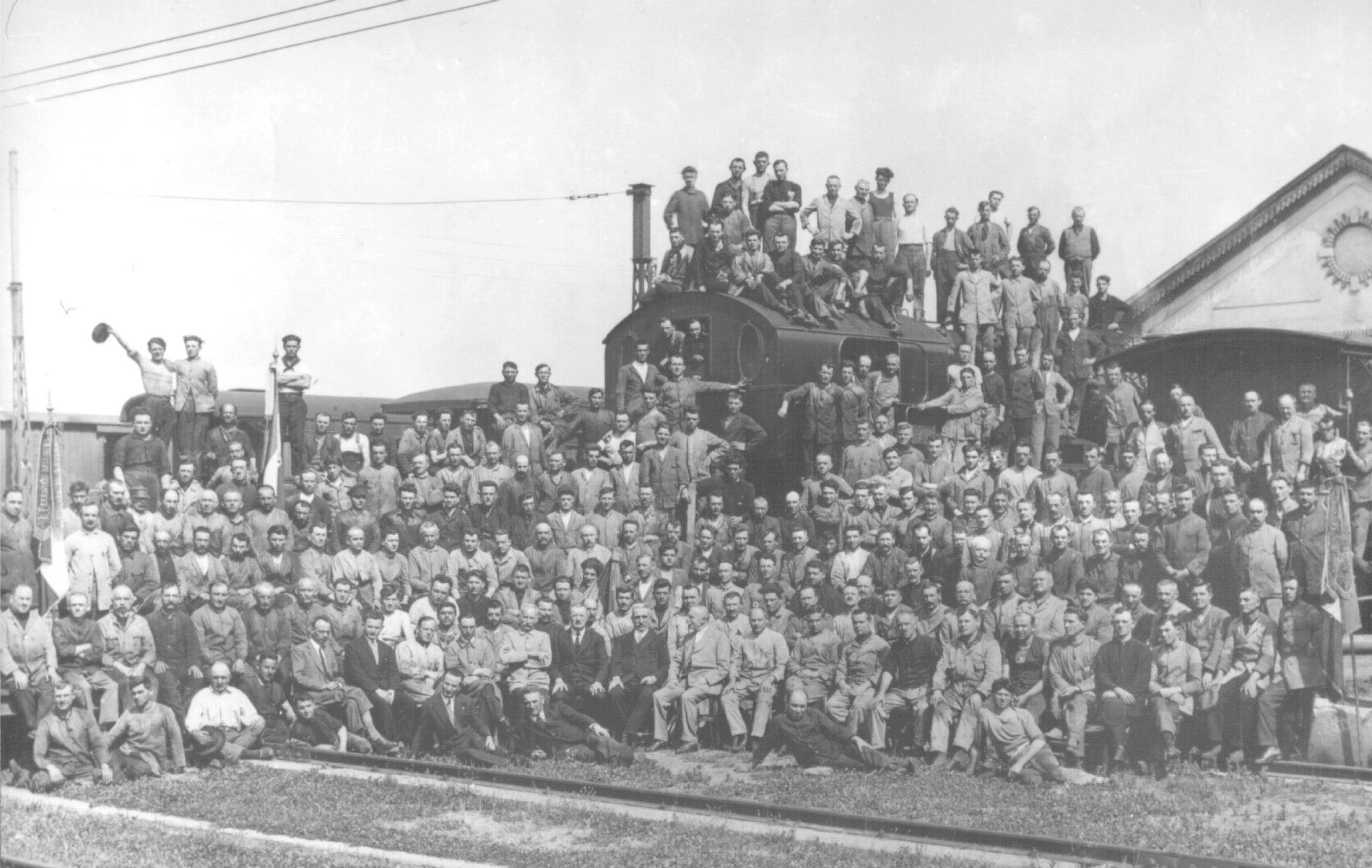
Charming group photo of the staff of the locomotive depot/workshop in 1929